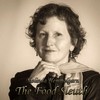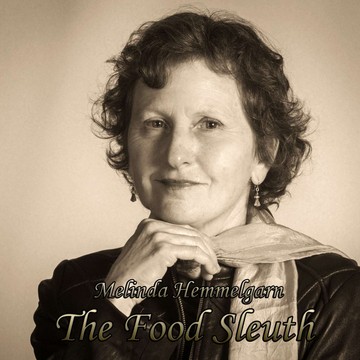

Food Sleuth Radio
Melinda Hemmelgarn
Dietitian Melinda Hemmelgarn helps listeners “think beyond their plates,” connect the dots between food, health and agriculture, and find food truth.
Episodes
Mentioned books

Jan 30, 2026 • 28min
Seth Itzkan, cofounder of Soil4Climate, discusses soil restoration through regenerative grazing.
Did you know that The United Nations has designated 2026 as the International Year of Volunteers for Sustainable Development (IVY 2026), the International Year of Rangelands and Pastoralists, and the International Year of the Woman Farmer? Join Food Sleuth Radio host and Registered Dietitian, Melinda Hemmelgarn for her conversation with Seth Itzkan, environmental futurist and cofounder of Soil4Climate, an international nongovernmental organization advancing the science, policy and practice of soil restoration through regenerative grazing and agroforestry practices as a climate solution. Itzkan discusses the role ruminants play in agriculture, soil restoration and sustainability. For state policies on soil health, see: https://nerdsforearth.com/state-healthy-soils-policy/ ; and for the Friends of the Earth report on the misconceptions on No-Till Farming, see: https://foe.org/resources/rethinking-no-till/Related Websites: www.soil4climate.org

Jan 22, 2026 • 28min
Jill Nussinow, MS, RD, Registered Dietitian discusses ways to improve nutrition and lead a healthier life in the New Year.
Did you know that eating well doesn’t have to be time consuming or expensive? Join Food Sleuth Radio host and Registered Dietitian, Melinda Hemmelgarn for her conversation with Jill Nussinow, MS, RD, Registered Dietitian a.k.a. “The Veggie Queen.” Nussinow, an author, chef and culinary instructor, discusses ways to improve nutrition and lead a healthier, happier life. She provides specific information on mushrooms, fermented foods, fiber, gut and brain health. Note: for information on safe mushroom hunting, see the North American Mycological Association: https://namyco.org/Related Websites: https://www.theveggiequeen.com/

Jan 16, 2026 • 28min
Mary Anne Cohen, Director of The New York Center for Eating Disorders. Part 2 of 2
Did you know that the new GLP-1 drugs may be helpful for overcoming certain eating disorders? Join Food Sleuth Radio host and Registered Dietitian, Melinda Hemmelgarn for her conversation with Mary Anne Cohen, LCSW, psychotherapist and Director of The New York Center for Eating Disorders. Cohen provides tips on overcoming emotional eating, and explains how GLP-1 drugs may help quiet “food noise.” She also addresses the role of social media in disordered eating and body image.Related Websites: www.emotionaleating.orgTheme music: Kevin MacLeod

Jan 9, 2026 • 28min
Mary Anne Cohen, Director of The New York Center for Eating Disorders discusses why diets don’t work. Part 1 of 2
Did you know that weight loss is one of the most common resolutions for the New Year, but that restrictive dieting is a gateway to eating disorders? Join Food Sleuth Radio host and Registered Dietitian, Melinda Hemmelgarn for her conversation with Mary Anne Cohen, LCSW, psychotherapist and Director of The New York Center for Eating Disorders. Cohen, defines “emotional eating,” discusses why diets don’t work, and her latest book, Ozempic for Smarties: A Psychotherapist Tells the Straight Skinny. Part 1 of 2Related Websites: www.emotionaleating.org

Jan 2, 2026 • 28min
Mark Winne, MS, discusses his latest book, The Road to a Hunger-Free America: Selected Writings of Mark Winne. (Part 2 of 2)
Did you know that as consumers, we are all stakeholders in our food system? Join Food Sleuth Radio host and Registered Dietitian, Melinda Hemmelgarn for her conversation with Mark Winne, MS, food policy expert, organizer and writer. The two will pick up their conversation from the week prior for a deeper dive into food justice and the importance of using our imagination to create a more just society, as told through stories from his latest book, The Road to a Hunger-Free America: Selected Writings of Mark Winne. (Part 2 of 2)Related Websites: www.markwinne.com

Dec 26, 2025 • 28min
Mark Winne, MS, food justice advocate and author of The Road to a Hunger-Free America: Selected Writings of Mark Winne. (Part 1 of 2)
Mark Winne, a dedicated food justice advocate and author with over 50 years of experience, shares his insights on transforming our food system. He recounts his beginnings in anti-famine activism and local projects in Maine. Winne emphasizes the importance of building community trust and empowering marginalized voices. He discusses the connection between grassroots efforts and policy changes, offers stories from various communities, and critiques the reliance on food banks, advocating for comprehensive solutions.

Dec 18, 2025 • 28min
Hillary Wright, MEd, Registered Dietitian, and co-author of The Menopause Diet Plan: A Natural Guide to Managing Hormones, Health, and Happiness.
Hillary Wright, a seasoned Registered Dietitian and co-author of The Menopause Diet Plan, shares her expertise on managing menopause through nutrition. She discusses how declining estrogen affects metabolism, emphasizing the importance of preparing in your early forties. Hillary debunks myths about carbohydrates, promotes protein for muscle preservation, and highlights the role of circadian rhythms in meal timing. She also addresses the impact of gut health on overall well-being and offers practical resources, urging a compassionate approach to midlife nutrition.

Dec 12, 2025 • 28min
Kamyar Enshayan, PhD, former Director of The Center for Energy & Environmental Education at the University of Northern Iowa discusses food system failures and solutions.
Did you know that food is more than medicine? Join Food Sleuth Radio host and Registered Dietitian, Melinda Hemmelgarn for her conversation with Kamyar Enshayan, PhD, former Director of The Center for Energy & Environmental Education at the University of Northern Iowa. Enshayan describes food system failures and solutions, and encourages us to treasure the farmers and those who produce our food in ways that protect public health and our environment. He advocates for reclaiming regional agriculture and food systems. Read a sample of his opinion editorials here: https://www.desmoinesregister.com/story/opinion/columnists/iowa-view/2025/10/04/iowa-cancer-carcinogens-take-action/86463061007/ ; https://www.thegazette.com/guest-columnists/immigrants-make-life-richer/Related Websites: https://ceee.uni.edu/

Dec 5, 2025 • 28min
Debra Hendrickson, MD, author of The Air They Breathe: A Pediatrician on the Frontlines of Climate Change
Did you know that it’s impossible to separate children’s health from their environment? Join Food Sleuth Radio host and Registered Dietitian, Melinda Hemmelgarn for her conversation with Debra Hendrickson, MD, author of The Air They Breathe: A Pediatrician on the Frontlines of Climate Change. Hendrickson explains the unique physical and mental health challenges faced by children due to climate change, and offers collective, corrective actions and hope.Related Websites: https://debrahendrickson.com/

Nov 28, 2025 • 28min
Coco Newton, RD, MPH, CNS, discusses how she applies functional medical nutrition therapy for those diagnosed with ALS (Amyotrophic Lateral Sclerosis).
Did you know that there is hope for patients diagnosed with ALS? Amyotrophic Lateral Sclerosis (ALS), the debilitating neurodegenerative disease commonly known as “Lou Gehrig’s Disease,” is influenced by genetics and environmental factors, including living near bodies of water frequently impacted by harmful algal blooms. Join Food Sleuth Radio host and Registered Dietitian, Melinda Hemmelgarn for her conversation with Coco Newton, RD, MPH, CNS, a registered dietitian and holistic practitioner with expertise in functional medical nutritional therapy for improving the diet quality and quality of life for those diagnosed with ALS. Newton has been involved with Healing ALS: www.healingALS.org. She references the ALS Clinic at Duke University: https://alsclinic.duke.edu/our-research/ and the international conference on ALS and Motor Neurone Disease will be held Dec 5-7 in San Diego, CA: https://symposium.mndassociation.org/programme/. To learn more about algal blooms and neurodegenerative disease, see: https://www.eurekalert.org/news-releases/1087706 Related Websites: https://www.coconewton.com/


